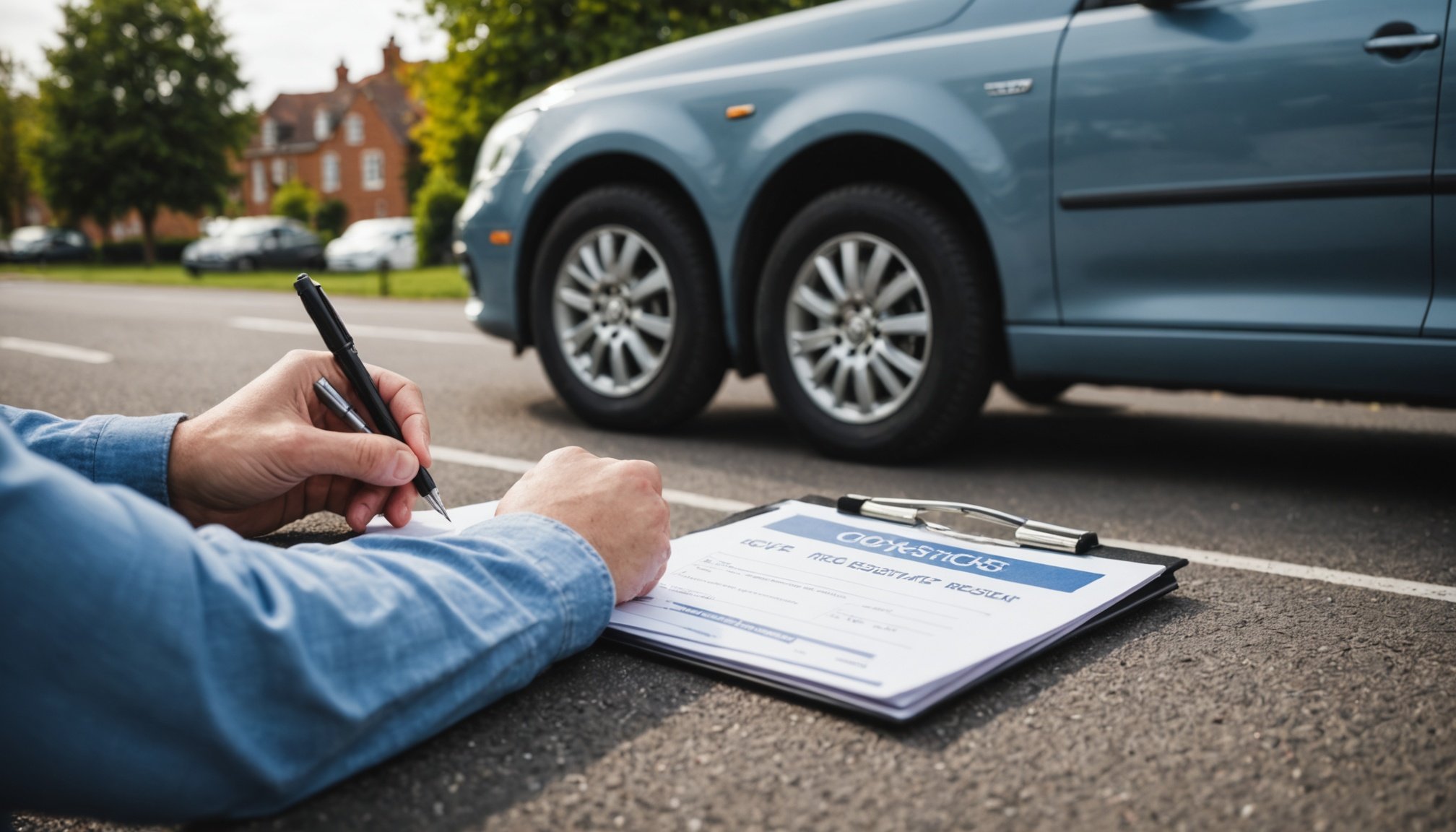Understanding the Vehicle Registration Update Process
Navigating the UK vehicle registration update can be confusing, particularly after relocating. Staying informed and proactive is key to avoiding unnecessary headaches.
After a move, updating your vehicle registration is crucial for legal compliance and ensures you receive important communications such as road tax renewals and vehicle safety recalls. Failing to update your vehicle’s registration can result in fines and complications, so it’s essential to act promptly.
A découvrir également : Step-by-Step Guide: How to Seamlessly Redirect Your Mail After Relocating in the UK
To execute the vehicle registration update, start by obtaining the correct forms from the Driver and Vehicle Licensing Agency (DVLA). Next, provide your updated address and any other required details. Upon completion, submit the forms and any necessary fees to the DVLA. Remember that this step is vital to maintaining accurate records and avoiding future penalties.
Common mistakes in the vehicle registration process include overlooking necessary documentation, entering incorrect information, or delaying the process. Double-checking all entries and ensuring timely submission can prevent such errors.
Sujet a lire : Ultimate Guide to Deep Cleaning Your Home Before Moving Out in the UK: Tips and Tricks
By understanding and following the vehicle registration process, you can ensure a smooth transition and avoid potential pitfalls. This systematic approach guarantees compliance with UK regulations and enhances your peace of mind.
Required Documents and Information
When it comes to vehicle registration, having the correct documentation is essential for a seamless process. There are several key documents and pieces of information that you must have, such as proof of identity, proof of address, and vehicle documentation. These documents collectively ensure that verification standards are met efficiently.
Proof of Identity
For ID verification, you must present a valid government-issued ID. Acceptable forms include passports, driver’s licenses, or national identity cards. This step is crucial to affirm your identity during the registration process.
Proof of Address
Providing proof of address is equally important. Examples of acceptable documents for this purpose include utility bills, bank statements, or rental agreements. These documents must bear your name and reflect your current residence to ensure accurate record-keeping.
Vehicle Documentation
When registering your vehicle, certain documents are indispensable. The vehicle title, odometer reading, and, if applicable, a lienholder’s information are necessary. It’s critical to maintain accurate and up-to-date vehicle documentation to avoid any future complications. This includes ensuring all information correctly reflects the vehicle’s current status, particularly when there have been changes in ownership or address.
Keep these requirements in mind to avoid any hurdles during your vehicle registration process.
Fees and Deadlines for Registration
Understanding the vehicle registration fees and aligning with registration deadlines is crucial for all vehicle owners. In the UK, fees for registration updates can vary based on the type and age of the vehicle, as well as specific regional regulations. Generally, new vehicles incur a higher initial fee compared to older models, which may only require a nominal charge for updates.
Timeliness is important when dealing with registration updates. There are specific registration deadlines set by the government that vary depending on factors such as vehicle type and your location. It is essential to be mindful of these deadlines to avoid potential legal issues or penalties.
Missing registration deadlines can lead to serious consequences. This can include fines, increased fees, and potentially having your vehicle impounded. Additionally, driving with an expired registration can also impact your vehicle insurance status, leaving you unprotected in case of an accident.
Staying informed about UK registration updates and any changes in policy or fee structures is a valuable habit. This proactive approach ensures compliance with the law and avoids unnecessary expenses related to missed deadlines.
Regional Considerations for Registration
When considering regional vehicle registration in the UK, it’s essential to understand that the process varies across regions like England, Wales, and Scotland. Each region has specific requirements tailored to their local regulations. The DVLA (Driver and Vehicle Licensing Agency) plays a crucial role in overseeing these processes but note that there are distinct local intricacies managed by each local council registration office.
In England, registration demands might involve additional emissions checks within certain cities, reflecting local councils’ priorities on environmental standards. Meanwhile, in Scotland, you’ll find a greater emphasis on aligning vehicle registration with rural infrastructural needs. Wales often combines traditional methods with modern technology to streamline their registration procedures.
Local council registration offices can sometimes require documentation particular to that county, reflecting cultural or environmental considerations of their communities. While the DVLA sets universal regulations, knowing local variations ensures a smoother process.
For a straightforward experience, always check the specific local council requirements before starting your vehicle registration process. Doing so not only complies with local governance but also considers regional differences that impact registration and vehicle operation legally and efficiently.
Updating Insurance and Other Details
When relocating, updating your vehicle insurance information is crucial. Notifying your insurance company promptly ensures that your policy reflects your current situation accurately.
Informing Your Insurance Provider
To begin, contact your insurance provider about your address change. This might also be a good moment to request any necessary changes in your coverage. Ensure all insurance documents are up-to-date for seamless service continuity. Clearly communicating changes reduces the risk of any service disruption or coverage lapses.
Necessary Changes to Coverage
Relocating could alter the coverage you require. Discuss how the new area might impact potential risks and premiums with your insurer. It can result in changes to your current policy, including premium adjustments. Adjusting coverage ensures your vehicle insurance remains appropriate for your circumstances.
Importance of Synchronization
Synchronizing vehicle registration and insurance information is vital. Misalignment could lead to complications in claims processing or legal issues. Here are steps to efficiently align these details:
- Keep track of insurance policy updates related to your new address.
- Ensure registration documents match the updated insurance details.
Staying proactive with these changes ensures compliance and maintains peace of mind in your new location.
Frequently Asked Questions (FAQs)
Moving to a new territory can raise pressing questions about vehicle registration. Here, we address some common issues encountered during this process.
Answers to Common Questions
What is the first step to register a vehicle after relocating? Begin by updating your address with the motor vehicle department in your new area. This essential step ensures that all subsequent registration documents are accurate and aligned with local regulations.
Troubleshooting Typical Issues
A prevalent issue is neglecting to verify emissions standards, which can vary significantly. To avoid this, check if your vehicle meets the host area’s criteria. If documentation errors arise during the registration process, scrutinize all entries for accuracy and completeness. Incorrect personal information is a frequent stumbling block.
Resources for Additional Support
When in doubt, reaching out to local DMV offices is advisable. They provide guidance specific to your jurisdiction’s norms. For comprehensive registration troubleshooting, many areas offer online resources where you enter your vehicle specifics to receive detailed advice. Some websites even have a chat feature, enabling real-time assistance.
By tackling these common registration issues proactively, the transition into your new locale can be more seamless. Embrace these strategies for an efficient registration process.











